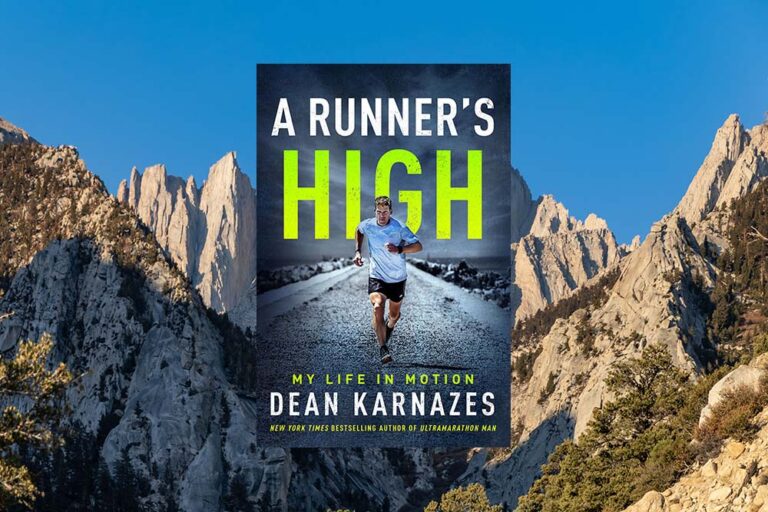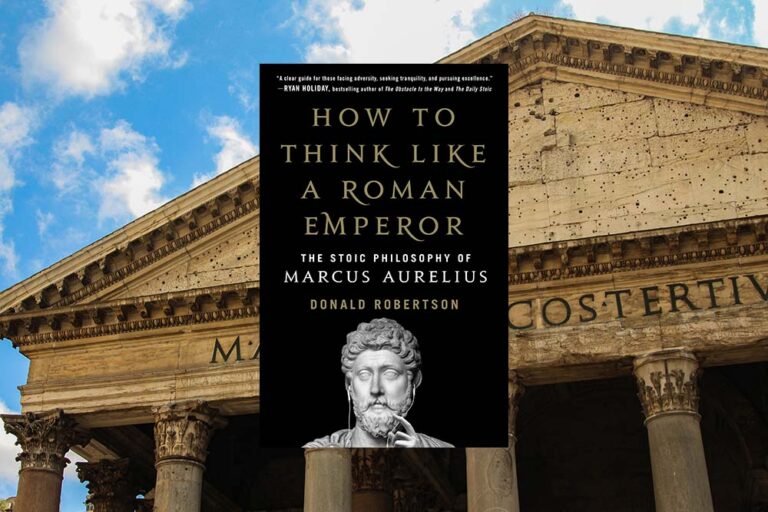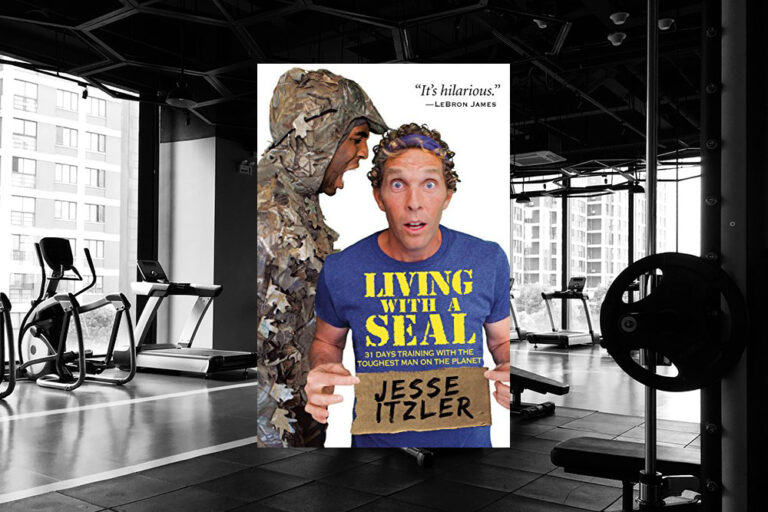#2: Exploring the Comfort Crisis. Notes From Michael Easter’s Book “The Comfort Crisis” (Part 1)

I’m a sucker for a good book on discomfort. When I saw Michael Easter’s The Comfort Crisis: Embrace Discomfort To Reclaim Your Wild, Happy, Healthy Self I was instantly sold.
In today’s article I’ll share with you my notes and comments on the book. Due to the length of the lessons I want to cover, my notes will come in three parts.
Discomfort and Personal Excellence
Most people today rarely step outside their comfort zones. We are living progressively sheltered, sterile, temperature-controlled, overfed, underchallenged, safety-netted lives. And it’s limiting the degree to which we experience our “one wild and precious life,” as poet Mary Oliver put it.
But a radical new body of evidence shows that people are at their best—physically harder, mentally tougher, and spiritually sounder—after experiencing the same discomforts our early ancestors were exposed to every day. Scientists are finding that certain discomforts protect us from physical and psychological problems like obesity, heart disease, cancers, diabetes, depression, and anxiety, and even more fundamental issues like feeling a lack of meaning and purpose.
Our lives today would be a dream come true for the past generations. But while we gained so much comfort, convenience, and safety, we lost connection with the wilder part of us.
Many men are now so accustomed to convenient urban living they feel uncomfortable walking through any kind of natural setting. And let’s not even mention any real challenges in the wilderness.
But I’ve also met men who are tuned in to the wild world. They surf terrifyingly big waves, sail across the ocean, and climb in unpredictable high mountains.
Adventures build their character and help them excel in life. You can tell it by looking at their faces. They tell a story. They radiate real-world experience. They show focus on the present moment.
While you don’t have to be an adventurer to be a “real” man, it’s worth it to periodically give up the safeties and conveniences of modern life. Discomfort, as strange as it sounds, can be potent medicine.
There’s nothing wrong with enjoying modern conveniences. What’s wrong is when men are so dependent on them they can’t sustain even a modicum of discomfort.
I struggle with mental health when my life is too easy. When I push my limits, ideally in nature, I reconnect with the wild part of me. I stop being so concerned about the future and instead focus on the present. It makes me happy, often at the same time as I’m struggling.
As Michael Easter notes, discomfort can be a cure to many ailments. This is one of the main reasons why I’m writing these articles. Modern men NEED periodic discomfort to not wither away.
Discomfort and Happiness
So, yes, we don’t have to deal with discomforts like working for our food, moving hard and heavy each day, feeling deep hunger, and being exposed to the elements. But we do have to deal with the side effects of our comfort: long-term physical and mental health problems.
We lack physical struggles, like having to work hard for our livelihoods. We have too many ways to numb out, like comfort food, cigarettes, alcohol, pills, smartphones, and TV. We’re detached from the things that make us feel happy and alive, like connection, being in the natural world, effort, and perseverance.
He called this “prevalence-induced concept change.” Essentially “problem creep.” It explains that as we experience fewer problems, we don’t become more satisfied. We just lower our threshold for what we consider a problem. We end up with the same number of troubles. Except our new problems are progressively more hollow.
So Levari got to the heart of why many people can find an issue in nearly any situation, no matter how good we can have it relative to the grand sweep of humanity. We are always moving the goalpost. There is, quite literally, a scientific basis for first-world problems.
Scientist David Levari conducted a study to find out if the human brain searches for problems even when they become rare or don’t exist.
In the quote above Michael explains how we always find new problems, even if they’re ridiculous first-world problems.
The men before us might have complained because bad weather ruined their crops and they faced starvation. Today we complain because we run out of our favorite food. It doesn’t matter the fridge is still full and that we can easily get whatever we want from the nearest supermarket.
Discomfort helps us see that we create many of our modern problems out of boredom and weakness.
If we continue pushing discomfort away, things will get even worse.
We can already see it in modern society.
Men grow weak as they seek happiness and connection through junk food, porn, video games, social media, and other zombie activities.
They see nature as something boring and inconvenient. Where’s the nearest supermarket? Why’s the phone reception so crappy?
They see effort as something undesirable. Why bother with hard things? Does anyone force me to do them? If not, what’s the point?
They see perseverance as a silly notion. Social media sells the image that things change overnight, or better yet, they’re given to you by someone else.
How can we NOT have first-world problems when voluntary discomfort is seen as something only obsessive, if not crazy, people do?
Comfort Creep
When a new comfort is introduced, we adapt to it and our old comforts become unacceptable. Today’s comfort is tomorrow’s discomfort. This leads to a new level of what’s considered comfortable.
Stairs were once a new marvel of efficiency. But why take them after the advent of the escalator? A little hard-earned lean meat and some plain potatoes was once the best meal of the year. But why have that bland combo when there are restaurants on every block offering perfectly formulated combinations of sugar, salt, and fat? A chilly teepee, yurt, or simple cabin was once a luxurious respite from the weather. But now we can dial our indoor temperatures to our exact specifications.
When we embrace discomfort, we redefine the level of what we consider comfortable. We feel happy with less and problems caused by comfort creep disappear.
After a strenuous hike in the wilderness, the simplest meal we would dismiss back home tastes like the best thing in the world.
The simple act of walking on firm ground after seasick on a rolling yacht can provide immense relief we would otherwise never feel walking around on a normal day.
Even the flimsiest roof above your head after escaping from a cold downpour feels like the world’s greatest gift.
To this day I remember the taste of the first meal I ate after my first 3-day fast (89 hours to be exact). It was a simple Greek salad with feta cheese, tomatoes, cucumber, red onions, and olives. It tasted like absolute heaven.
After my second 3-day fast (84 hours to be exact) I ate simple steamed vegetables and felt like crying from joy.
When we welcome discomfort, not only do we stop complaining about inconsequential stuff. We also learn to appreciate what we have. And that, as a side effect, gives us more happiness.
Death Is Uncomfortable But We Can’t Ignore It
“When you start to understand that death is coming, that the cliff is coming, you see things differently. You change your mental course—you naturally become more compassionate and mindful,” said the khenpo. “But Americans, they don’t want to hear about the cliff. They don’t think about death. After a funeral they want to get their mind off the death and just eat cake. The Bhutanese, they want to know about the cliff and they will be happy to talk about death and ruin the cake-eating.”
In his search to become more comfortable with the uncomfortable, Michael traveled to Bhutan.
In Bhutanese culture, one is expected to contemplate death several times a day.
The country’s interest in death is widespread and the Bhutanese don’t consider death a taboo topic. They accept it as a normal part of life, one that awaits us all, and one that we can’t sweep under the rug.
Death is an uncomfortable topic we often don’t know how to handle. But as men who want to lead, we need to know how to talk about it, support those who are grieving, and learn to co-exist with our own grief.
After a sudden death in the family, I have a strong fear of death. I have some uncomfortable mental work to do to overcome it.
Lama Damcho Gyeltshen offered Michael the following advice to get more comfortable with death (mitakpa means impermanence):
“You must think of mitakpa three times each day. Once in the morning, once in the afternoon, and once in the evening. You must be curious about your death. You must understand that you don’t know how you will die or where you will die. Just that you will die. And that death can come at any time,” he said. “The ancient monks would remind themselves of this every time they left their meditation cave. I, too, remind myself of this every time I walk out my front door.”
Questions to Ponder
1. How does the comfort crisis affect you? How do you deal with it?
2. How often do you catch yourself complaining about inconsequential problems?
3. What actions do you take daily to avoid comfort creep?
4. How often do you think about death? Do you ignore it because it’s uncomfortable?
If you want more advice on how to become a better man through discomfort, sign up for a free weekly Discomfort Club newsletter. Enter your email address below:






